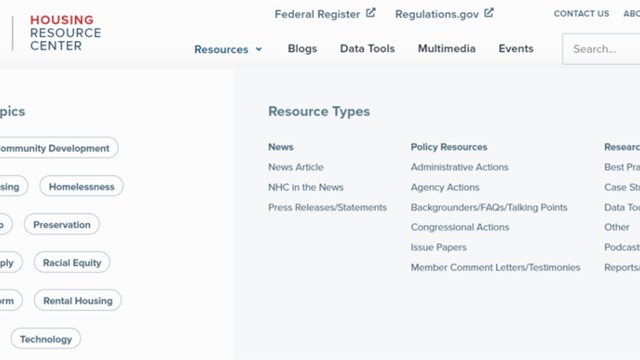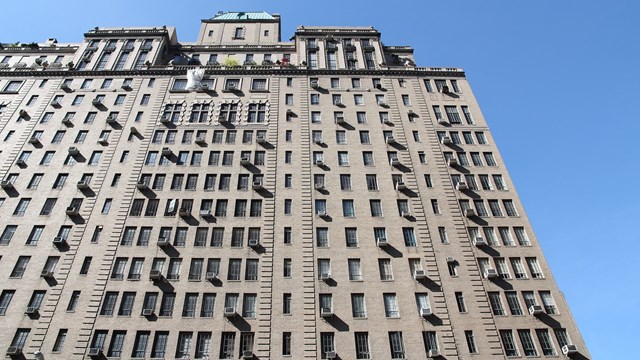Every day, New York's court system hands down verdicts and decisions that impact the day-to-day operation of co-op and condo buildings. Some decisions are far-reaching, precedent-setting game-changers; others affect building administration in subtler ways. Keeping abreast of the most recent decisions affecting the city's cooperatives and condominiums is an important part of the job description for both board members and managing agents. Let's take a look at some recent decisions with implications for building communities.
Ewen v. Maccherone
Lesson: Condo Owners, Beware of Smoking that's a Nuisance to Your Neighbors
The battle over smoking in New York City's restaurants and bars was decided years ago, but in apartment buildings, the conflict rages on – and sometimes goes all the way to court before a decision is reached.
One recent such decision involved two residents of a condominium at 200 Chambers Street in Manhattan whose argument over cigarette smoke eventually led them before a judge. Mr. Ewen, who owns and resides in unit 7C sued Mr. Maccherone, who resides in 7D, for nuisance and negligence, claiming that Maccherone and his guests smoke cigarettes in the unit and that the smoke invades Ewen’s unit.
The condo’s rules and regulations contained the typical provision that “No Unit Owner shall make or permit any disturbing or objectionable noises, odors or activity in the building, or do or permit anything to be done therein, which will interfere with the rights, comforts or conveniences of other Unit Owners or their tenants or occupants.” The rules and regulations also prohibited smoking in the condo’s playroom and health club.
The takeaway from this case is that the court refused to dismiss the nuisance and negligence complaint, and even more significantly, the held that the condominium association was not a necessary party and did not hold the sole and exclusive right to commence an action for violation of the condo’s rules and regulations.
Amalgamated Dwellings Inc. v. Blutreich
Lesson: Dot Your I’s and Cross Your T’s When Settling
In a long protracted battle between a cooperative and two of its shareholders over unpaid maintenance and electric charges, the co-op settled a prior proceeding, but overlooked the fact that it asserted a prayer for relief in that proceeding – including “costs, disbursements and attorneys’ fees” – when it settled the matter. Attorneys often include that type of language in their prayer for relief in pleadings. After the settlement, the cooperative started another action seeking to recover those attorneys’ fees.
The Appellate Division, First Department upheld the trial court’s dismissal of the action, holding that “The cooperative asserted a claim for the attorneys' fees it seeks herein, and settled it. It does not avail the cooperative to assert, for the first time in its reply brief on the appeal, that inclusion of this claim for attorneys' fees was included in the order to show cause ‘inadvertently.’”
The Residential Board of Managers of the Vanderbilt Condominium v. Lev and Eleanor Goldberg
Lesson: Attorneys Fees Can Be Recovered as Costs and Expenses Under Condo Bylaws
Accessing condo units in order to do repair or improvement work is often a challenge for boards and managers. In order for the Vanderbilt Condominium to comply with Local Law 11 requirements, the terrace outside the unit owned by the Goldbergs needed some repair work. The Goldbergs acknowledged responsibility for the repairs to the terrace, but refused to make the repairs and/or allow the condominium access to perform the repairs.
The board commenced suit against the Goldbergs for access and obtained a court order. The repairs were performed, but not paid for by the Goldbergs. The condominium charged the Goldbergs for those amounts, as well as the legal fees involved in getting the court order to enter the apartment, and filed a common charge lien against the unit for those amounts. The Goldbergs sought a court order stopping the condominium from foreclosing the lien, and the court refused.
The condo’s bylaws provide that “[A]ll sums expended and all costs and expenses incurred in connection with the making of any such . . . maintenance, repair or replacement . . .” are chargeable to the unit owner as common charges. Vanderbilt argued that “costs and expenses” include legal fees as well. The court applied an Appellate Division, First Department case (Board of Managers of Amherst Condominium v. CC Ming (USA) Ltd. Partnership) holding that the language “costs and expenses” does indeed include attorney fees.
Kaung v. Board of Managers of Biltmore Towers Condominium Association
Lesson: Condo Boards Need to Verify Their Authority to Act Before Entering into Agreements
The board of managers of Biltmore Towers Condominium entered into a lease with a cellular telephone company for installation of antennas and related wireless communications equipment on the condo’s roof. Unit owners and occupants sued to undo the leases, arguing that the board exceeded its authority under the condominium bylaws in leasing the common element roof for that purpose. The Appellate Division, Second Department, agreed with the unit owners and occupants explaining that “[t]he relevant provisions of the condominium's bylaws restrict the common elements of the building to uses for which they are reasonably suited, and which are incident to the residential use of the individual units.” The court found that the proposed wireless communications equipment would not serve a purpose incident to the residential use of the individual units at the condominium and granted the requested injunctive relief. The decision did not address whether the condominium included a provision in the agreement allowing the condominium to escape the contract without being responsible for damage to the cellular telephone company for breach of contract.
First Avenue Owners, Inc. v. Valentina Enterprises LLC and J.A.V. Food Corp.
Lesson: Cooling Towers Can Be an Actionable Nuisance
First Avenue Owners, Inc. is a 20-story co-op adjacent to a five-story building owned by Valentina Enterprises LLC and occupied by a grocery store and food bar called J.A.V. Food Corp. The co-op sued their neighbor after a cooling tower was installed on the roof of the five-story building, obstructing the views of the co-op’s sixth- and seventh-floor apartments on the south side. The tower also emitted bursts of hot air and fumes, and generated noise levels that exceeded New York City legal limits.
In a battle of the experts, the court granted summary judgment to the cooperative, finding that the tower violated a negative easement of unrestricted light, air and view, and constituted a private nuisance. The court explained that a private nuisance is (a) an interference substantial in nature, (b) intentional in origin, (c) unreasonable in character, (d) with a person’s property right to use and enjoy land and (e) caused by another’s conduct in acting or failure to act. The court granted the co-op permanent injunctive relief requiring defendants to remove, replace and modify the cooling tower so that it complies with the easement.
Hadzihasanovic v. 155 East
72nd Street Corporation
Lesson: It May Be Time to Review Your Alteration Agreement
In this personal injury action against a co-op located at 155 East 72nd Street in Manhattan, the Appellate Division Second Department took the opportunity to opine on the cooperative’s alteration agreement.
The court’s holding started debate in the cooperative community as to whether alteration agreements need to be changed to account for this decision, which held that the 155 East 72nd Street Corporation’s alteration agreement was void pursuant to General Obligations Law (GOL) Section 5-321. According to the court's decision, “A broad indemnification provision in a lease, such as the alteration agreement here, which is not limited to the lessee's acts or omissions, fails to make exceptions for the lessor's own negligence, and does not limit the lessor's recovery under the lessee's indemnificationobligation to insurance proceeds, is unenforceable” under Section 5-321.
Although the impact of this decision remains to be seen, it may be prudent to have counsel review your alteration agreement in light of the decision.
Joseph G. Colbert is a partner with Kagan Lubic Lepper Lewis Gold & Colbert, LLP, specializing in the representation of cooperatives and condominiums.







Leave a Comment